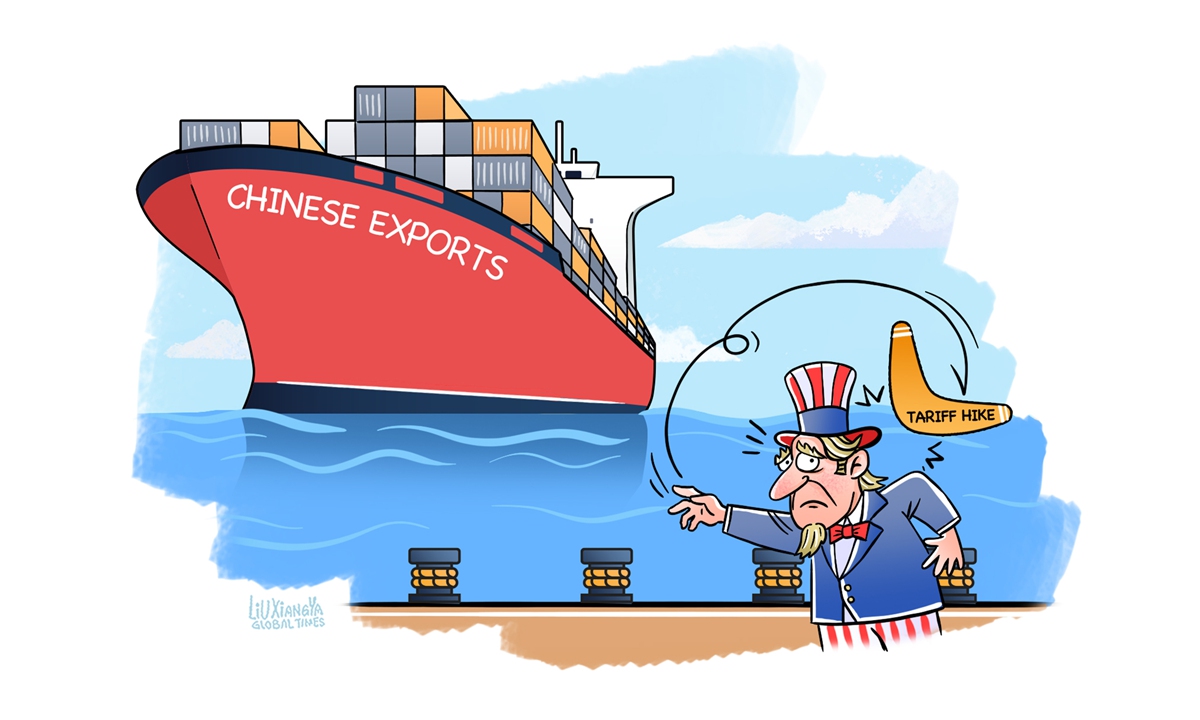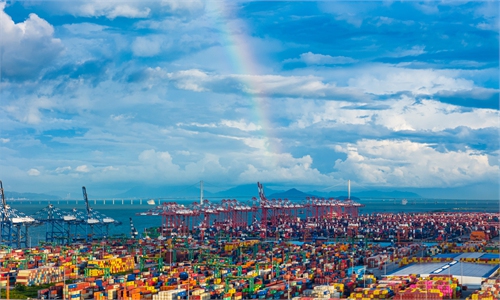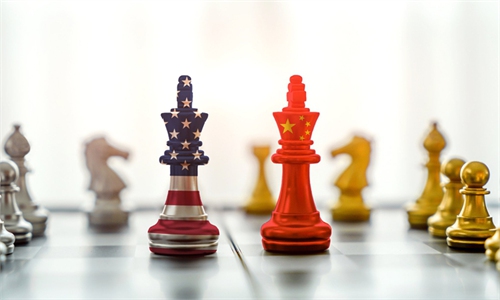
Illustration: Liu Xiangya/GT
UBS Group AG said in a research note that new tariffs of 60 percent on all Chinese exports to the US would more than halve China's annual growth rate, Bloomberg reported on Tuesday. Such anxiety is groundless, and it is absurd to exaggerate the threat that protectionist US tariffs pose.The huge scale of bilateral trade reflects the two countries' mutual needs and their complementarity. But instead of revealing these truths, some economists are trying to portray tariffs as a powerful weapon. It is a dangerous exaggeration that may add fuel to the already irrational sentiment in the US toward a trade war.
China is not willing, but nor is it afraid, to fight a trade war. The Chinese economy has a sufficient self-defense capability.
First, China has the world's largest middle-income group and the second-largest consumer market, which offer leeway for the country to cope with potential trade protectionism measures by foreign countries.
From a demand perspective, consumption has become the main engine driving China's economic growth, with its contribution continuously increasing. China's consumption in 2023 contributed 82.5 percent to GDP growth. The country has a strong ability to insulate itself from external shocks.
Second, China has continuously diversified its trading partners and optimized its trade structure, moves that enhance its ability to cope with external challenges. Exports to the US stood at $241 billion in the first half of 2024, accounting for less than 15 percent of China's total exports.
In this era of globalization, a complete economic decoupling between China and the US is impossible. The reason why China-US trade has developed to the current level is the natural result of the law of the market and the trend of economic globalization. It would be regrettable if Washington continues to interfere in normal economic cooperation between the two countries.
However, there is no need to be overly pessimistic. Even if the US imposes new tariffs on imports from China, the measure is expected to have a limited impact on the Chinese economy. It is groundless to say that new tariffs of 60 percent would halve China's economic growth.
China's GDP expanded 5 percent to reach 61.68 trillion yuan ($8.49 trillion) in the first half of 2024, demonstrating the resilience of the economy. The Chinese authorities have a variety of policy tools to ensure the economy expands within a reasonable range. The country has set an economic growth target of around 5 percent for 2024, which shows its confidence in maintaining economic stability.
In recent years, the US has increasingly seen China as a competitor or even a "hypothetical enemy" rather than an economic partner. This has led US trade policy to deviate from the right track. A more important question is how much unnecessary damage new tariffs on Chinese exports will do to the US economy.
It is widely accepted that tariff increases on Chinese exports will exacerbate US inflationary pressures. US inflation fell faster than forecast to 3 percent in June. It is believed that ordinary Americans are unwilling to return to the time of high inflation.
A trade war is irrational and without winners. The US economy will be the first victim if Washington further escalates its trade conflict by imposing more tariffs.
We hope the current trade protectionism fever in the US won't result in more hawkish US foreign and trade policies against China, which will further disrupt supply chains between the two countries and around the world. However, if this scenario becomes reality, other countries, including China, should be prepared for irrational US policies.
If any member of the American political elite believes new tariffs could severely damage the Chinese economy, they're just being arrogant. There is no need to exaggerate the threat that protectionist US tariffs pose. Irrational voices may encourage the US to go further down the wrong path of trade protectionism, which should be avoided.
The author is a reporter with the Global Times. bizopinion@globaltimes.com.cn



